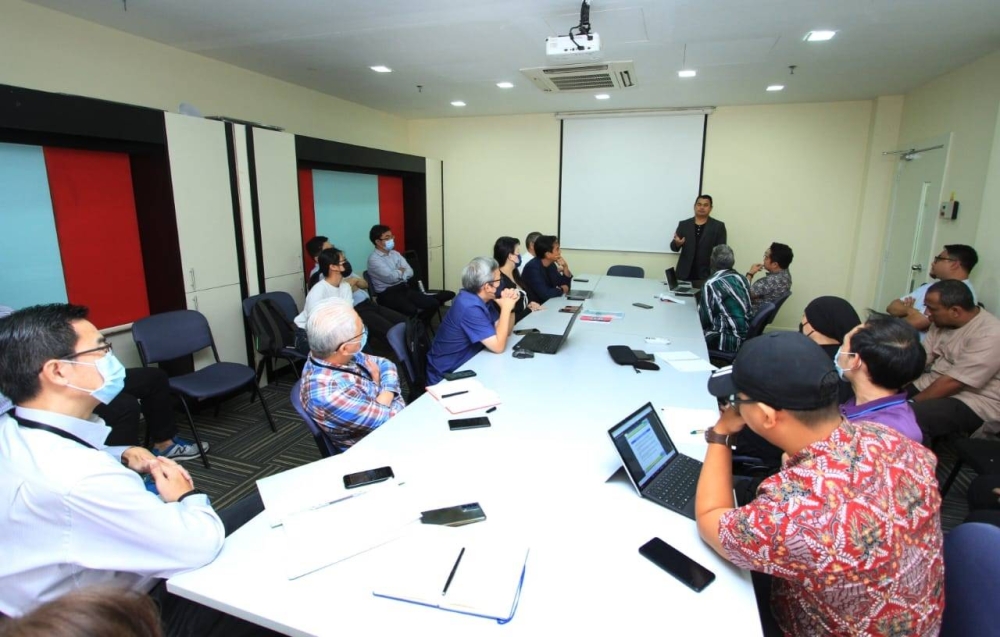GE15: Living cost, price of goods, national economy among issues need to be resolved by future govt

SHAH ALAM - The cost of living and the price of goods, restoring the national economy, issues of education and political stability are among the main issues that need to be resolved by leaders.
The five main points were the answers to the question of what the people want out of the 15th General Election (GE15) based on face-to-face and online surveys.
The mega study was conducted by three research firms namely Ilham Centre, O2 Research Malaysia (O2) and Huayan Policy Institute Center for Malaysia Chinese Studies (Huayan).
The public survey ahead of GE15 was also carried out in collaboration with five media outlets, namely Sinar Harian, Astro Awani, The Star, Sin Chew Daily and Malaysia Nanban.
Ilham Centre
Ilham Centre's research team was led by its executive director Muhamad Hisommudin Bakar together with head of operations Mohd Azlan Zainal and head of research Associate Professor Dr Mohd Yusri Ibrahim and head of analytics Mohd Jalaluddin Hashi.
The field study was conducted for two months from August to September through face-to-face interviews which involved 1,622 respondents according to various backgrounds, race, gender, educational level and economy throughout the country.
The study found that 44 percent of respondents stated that the new government should prioritise to restore and improve the national economy after GE15.
A total of 35 percent of respondents wanted the government to prioritise efforts to eradicate poverty and deal with the cost of living experienced by the people, while eight per cent chose to prioritise cleaning the government from a culture of corruption.
In addition, seven per cent of respondents wanted the promises of the manifesto to be fulfilled, in addition to bridging the gap between races (three percent) and reform institutions and government administration (one percent).
Based on the conclusion of the study, the people saw the government as failed to have a complete solution and the best solution to the pile of issues faced at the moment, especially the problem of rising prices of goods, the cost of living and the people's economy.
O2
The O2 survey involved 1,105 respondents with a breakdown of 18 to 21 years and 21 to 25 years respectively seven per cent, 26 to 30 years (eight per cent), 31 to 35 years (14 per cent), 36 to 40 (15 per cent), 41 to 50 (26 per cent), 51 to 60 (17 per cent) and over 60 years (seven per cent).
The survey involved respondents of various races in urban and rural areas across the country.
Respondents chose five priorities out of 16 items asked in a question about the most important issues for the country's leaders to resolve.
More than half, which is a whopping 57 per cent, emphasised the cost of living and the price of goods, while 49 per cent hoped that job opportunities and salary rates would be given attention.
46 percent of respondents also chose education issues, in addition to political stability (44 per cent) and currency rates and national debt (41 per cent).
Huayan
Huayan's survey was conducted through two research methods, which involved face-to-face interviews with 293 Chinese respondents from three locations, namely Pakatan Harapan (PH) Bukit Gelugor, Barisan Nasional (BN) Ayer Hitam and Perikatan Nasional (PN) Sungai Besar seats.
The online study involved all races and locations with only 2,061 Chinese respondents analysed and there were 51 non-Chinese respondents.
The respondents consisted of various genders, political backgrounds, education, total household income, age and each state.
The five main issues highlighted as priorities were the cost of living and the price of goods (78.6 percent), followed by education (75.1 percent), political stability (72.9 percent), inter-racial relations (72.5 percent) and national debt (68.6 percent).
Based on the conclusions made, Huayan found that apart from education, issues such as the cost of living, the economy and political stability were highly emphasised by Chinese voters in GE15














